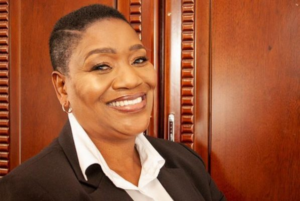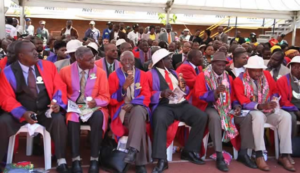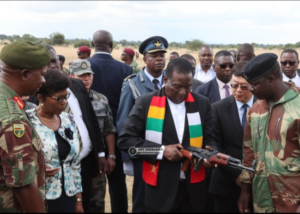ZIMBABWE’S ELECTORAL CONUNDRUM: TRUST DEFICIT IN DEMOCRATIC PROCESSES”
The landscape of Zimbabwe’s democracy is marred by a significant trust deficit, especially concerning the Zimbabwe Electoral Commission (ZEC). A recent Afrobarometer study reveals that only 47% of the population has confidence in the ZEC’s ability to conduct credible elections. This skepticism is rooted in the contentious 2018 elections, which many believe were plagued by unfair practices.
Emmerson Mnangagwa, the incumbent president from Zanu-PF, narrowly clinched victory with 50.8% of the vote, edging out Nelson Chamisa of the Movement for Democratic Change Alliance, who garnered 44.3%. The delay in announcing these results, which spanned three days, only amplified public distrust.
As Zimbabwe braces for another electoral showdown between Mnangagwa and Chamisa, expected between 26 July and 26 August, the ZEC faces renewed scrutiny. The commission’s reluctance to disclose the voters’ roll, citing the Data Protection Act’s privacy concerns, has raised eyebrows. ZEC chairperson Priscilla Chigumba defended this decision in a parliamentary committee, highlighting the commission’s responsibility for safe data dissemination. This stance was reinforced when the High Court rejected a legal challenge from opposition legislator Allan Norman “Rusty” Markham.
Adding to the electoral narrative, the ZEC reports an increase in registered voters, from five million in 2018 to six million. Zanu-PF ambitiously targets five million of these voters, leaving a meager one million for the opposition. The party’s claim of three million participants in its primary election is seen as a show of electoral strength.
The Afrobarometer study, however, suggests that policy promises, rather than party allegiances, will be the deciding factor for many Zimbabweans. The study also noted a trend of provincial bias, with voters favoring local candidates.
Encouragingly, the study found a strong democratic spirit among the public. An overwhelming 81% believe that the election loser should accept defeat and work with the victor for national development. This sentiment signals a potential shift from the election-related violence and disputes that have plagued Zimbabwe’s political scene.
Yet, Zimbabwe’s recent history is fraught with conflict. The 2017 post-election violence, broadcast live following the coup against former President Robert Mugabe, remains a stark reminder of these tensions. Chamisa, who contested the 2017 results and lost, has not recognized Mnangagwa as a legitimate president.
In response to these tensions, President Mnangagwa has cautioned against inviting observers from “hostile” nations, claiming they undermine Zimbabwean democracy.
Despite these challenges, faith in democratic processes remains resilient among Zimbabweans. According to Afrobarometer, 59% believe elections effectively facilitate the removal of underperforming leaders. Additionally, 53% feel that parliamentarians accurately represent their views, and 73% stress the importance of multiple political parties for genuine electoral choice.
In this climate of doubt and political upheaval, Zimbabweans’ commitment to democratic principles stands as a beacon of hope. It is a testament to their enduring belief in the power of the ballot box to enact change and their unwavering pursuit of a fair and just political system.



